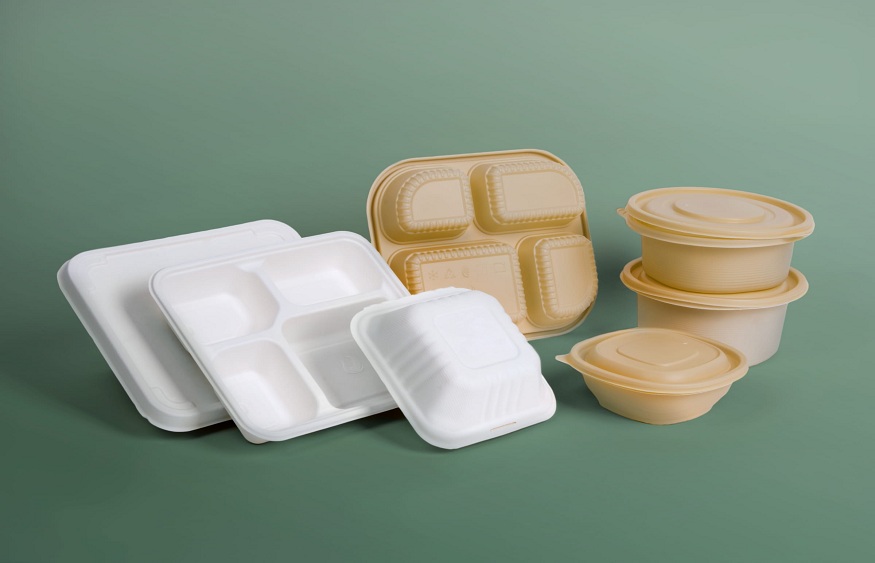Keeping Food Fresh And Eco-Friendly: The Strong Arguments In Favor Of Food Packaging Containers

The advantages of using food containers to store your food outweigh the price of making a quality purchase. Thanks to technology, there are many different kinds of food containers available for every need you may have. What’s interesting is that you can keep food for breakfast, lunch, and supper in these food containers.
However, it seems that the container material causes a lot of disagreements among people. Food containers come in a variety of varieties, but their costs vary as well. This post today will provide you with reasons to think about utilizing food containers if you have been unsure about it. Following are some of the top benefits of buying food packaging containers online.
Clean Storage
Food packing containers provide sanitary storage while guarding against contamination of consumables. They protect food from physical touch, dust, and insects while it is being transported and displayed. This preserves the integrity of the items and protects customer health.
Regulating Portion
Controlling your portions is crucial to eating a balanced diet. Pre-measured portions may be held in a variety of food packing containers, which makes it simpler for customers to keep an eye on their consumption. In addition to encouraging better eating practices, this also lowers overindulgence and food waste.
Practicality and Adaptability
Convenience and food packing containers go hand in hand. They are easily portioned, stacked, and transported because of their variety in shapes and sizes. Simple meal planning and on-the-go eating are made easier with these containers, whether you’re packing a school lunch, making a picnic, or keeping leftovers.
Freezer and Microwave Compatibility
The containers used in modern food packaging are designed to endure a wide range of temperatures, from very cold to extremely hot. Because of their adaptability, leftovers may be frozen and reheated in the microwave without requiring additional dishes. By doing this, you not only save time but also lessen the need for throwaway substitutes like aluminum foil or plastic wrap.
Diminished Food Soiling
Food business and customers alike are very concerned about food deterioration. Food that has been packaged is shielded from environmental elements that might lead to spoiling, such oxygen, humidity, and temperature changes, by the packaging container. Through their potential to reduce spoilage-related food waste, these containers support both environmental and economic sustainability.
A Range of Substances
There are many different types of food packing containers available, such as glass, plastic, metal, and biodegradable alternatives. Customers may choose containers based on their tastes and environmental objectives thanks to this diversity. For example, those who are worried about plastic waste might choose environmentally beneficial substitutes derived from plant resources.
Particularized Packaging
Customized packaging is a key component used by the food business to sell and distinguish its goods. Food packing containers may be designed to highlight logos, provide details, and improve a product’s aesthetic appeal. This aids companies in drawing clients and building a solid brand identity.
Simple Tracking and Labeling
A lot of food packing containers include surfaces for labeling or are designed to make label attaching simple. This guarantees that customers have access to critical information like as expiry dates, ingredients, and nutritional details and helps with inventory management and traceability.
Eco-Friendliness and Sustainability
Reducing the environmental effect of food packing containers has been a goal in the current age of sustainability. Producers are using more environmentally friendly materials and creating reusable, biodegradable, or recyclable containers. Through conscientious consumption decisions, consumers may take an active role in mitigating plastic pollution and fostering a more ecologically sustainable world.
Observance of Food Safety
Food enterprises must adhere to strict packaging requirements in order to comply with food safety rules. Containers used for food packing are essential to maintaining adherence to these rules. They have to be safe, non-toxic, and suitable for food preservation without sacrificing quality.
Lower Rates of Foodborne Illnesses
Efficient packing reduces the possibility of foodborne infections and stops contamination. The food supply chain’s overall safety is enhanced by food packing containers, which tightly seal food and shield it from dangerous microorganisms.
Distribution and Transportation
Containers for food packing are designed to endure the rigors of distribution and transportation. They reduce losses from breakage or spoiling and shield goods from harm during transportation. This dependability is essential for customers and organizations alike.
Customer Self-Assurance
Food packaging that is well-designed encourages customer trust. Products that are cleanly packaged, correctly labeled, and tightly sealed win over customers’ confidence. Repeat business and brand loyalty are promoted by this trust.
New Ideas and Prospects for the Future
Food packaging is a field that is always changing. The efficiency and sustainability of packing containers are increasing due to advancements in materials and designs. The future of food packaging is intriguing, with options ranging from smart packaging with inbuilt sensors for freshness monitoring to edible packaging.
Defending Valuable Objects
Delicate pastries and sweets are examples of fragile food products that need to be handled and protected with extra care. The christmas cake packaging with Cake boxes and pastry domes are two examples of excellent packaging that can keep your baked products fresh and beautiful even after a long trip.
Increased Product Life
Containers used in food packaging play a crucial role in increasing the shelf life of different items. For example, vacuum-sealed containers exclude oxygen from the packaging, preventing the development of bacteria that cause spoiling and prolonging the shelf life of the product.
Defense Against Outside Influences
Food packing containers protect goods from light and humidity in addition to contamination. For example, airtight closures prevent moisture penetration and keep crackers and cereals crisp, while opaque containers shield light-sensitive substances like olive oil.
Improved Carrying and Lunch Preparation
On-the-go meals and meal preparation have become commonplace in today’s hectic society. Food packaging containers facilitate the packing and transportation of prepared snacks and lunches, encouraging a shift away from fast food and toward healthy eating practices.
Efficiency in Space
Containers for food packing are designed to be both stackable and space-efficient. As a result, customers may maximize the space in their pantries, refrigerators, and freezers by arranging and optimizing storage with them.
Conclusion
Purchasing a high-quality product including a decision to buy santa hat makes it clear that you understand the advantages of food containers. In general, food containers are very strong, leak-proof, lightweight, simple to maintain, and guarantee food safety. Not to mention, you may use these containers to keep leftover food, which saves you money.







